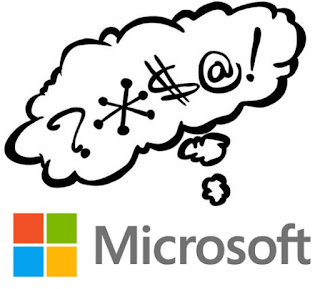Friday, March 30, 2018
What the @#$%&!? Microsoft Bans Nudity, Swearing in Skype, E-mails, etc.
The Register UK reports that Microsoft has updated its terms of service (TOS) to ban nudity, swearing in Skype, emails, and Office 365 docs. Microsoft has advised customers that offensive language on Skype, in an Outlook.com email, or in an Office 365 Word document is a potentially account-closing offense under its updated terms of use.
The new TOS agreement, which comes into effect on May 1, 2018, now includes the following code-of-conduct item:
** Don’t publicly display or use the Services to share inappropriate content or material (involving, for example, nudity, bestiality, pornography, offensive language, graphic violence, or criminal activity). **
** If you violate these Terms, we may stop providing Services to you or we may close your Microsoft account. We may also block delivery of a communication (like email, file sharing or instant message) to or from the Services in an effort to enforce these Terms or we may remove or refuse to publish Your Content for any reason. When investigating alleged violations of these Terms, Microsoft reserves the right to review Your Content in order to resolve the issue. However, we cannot monitor the entire Services and make no attempt to do so. **
Microsoft told The Register it does not listen to Skype calls, which is good to know. But Microsoft added that it may examine private files and conversations that potentially breach the code-of-conduct if they receive a complaint from someone, be it a Skype chat or an e-mail, etc.
We understand the legalese in the updated TOS needs to be broad so that Microsoft bods can step in when there’s genuine abuse or harassment being thrown around on its services.
But the new agreement is problematic because it hints at far broader and frankly creepy interventions involving rifling through people's private files, if someone is upset at another user. Which in light of recent revelations about abuse of personal data on the internet, just isn’t a good look no matter that the agreement was probably drafted with good intentions.
--
The fact that Microsoft "may examine private files and conversations" in Skype, e-mail, and Office 365 documents clearly shows that these services are NOT secure and should never be used to transmit or store sensitive information.
Subscribe to:
Post Comments (Atom)

No comments:
Post a Comment
Note: Only a member of this blog may post a comment.